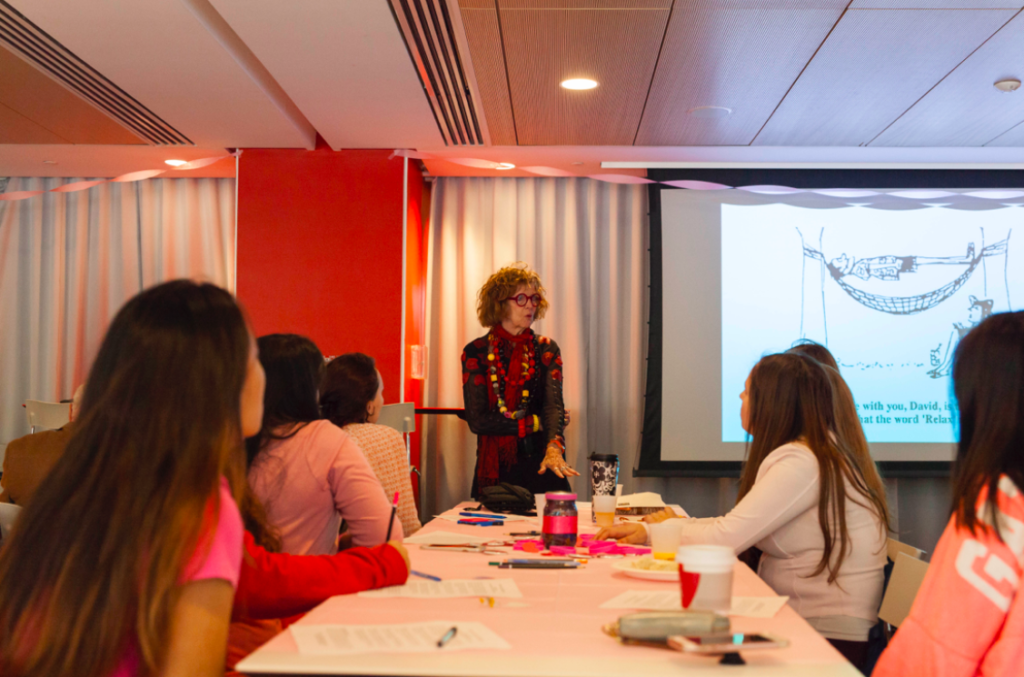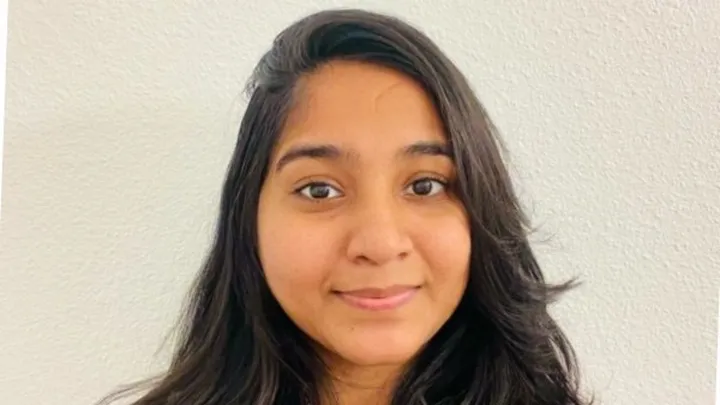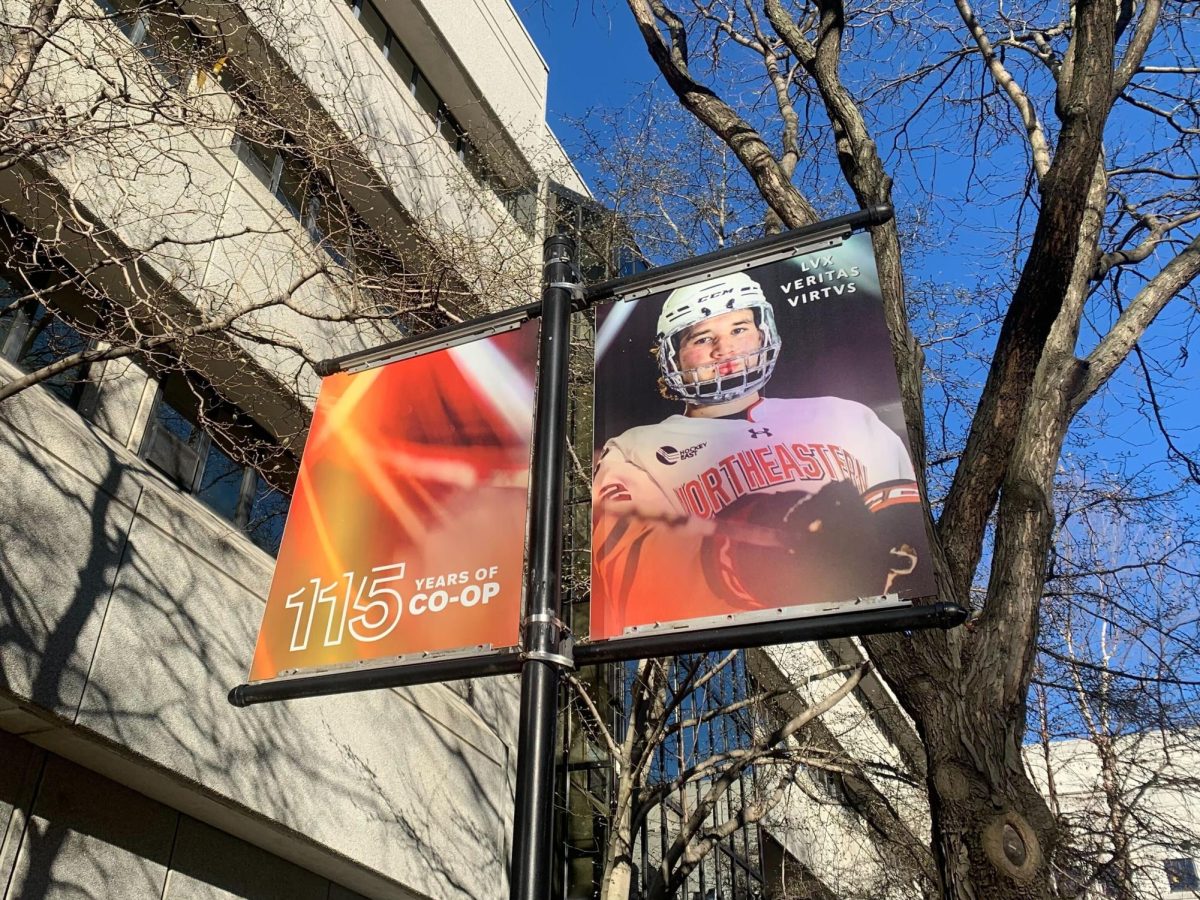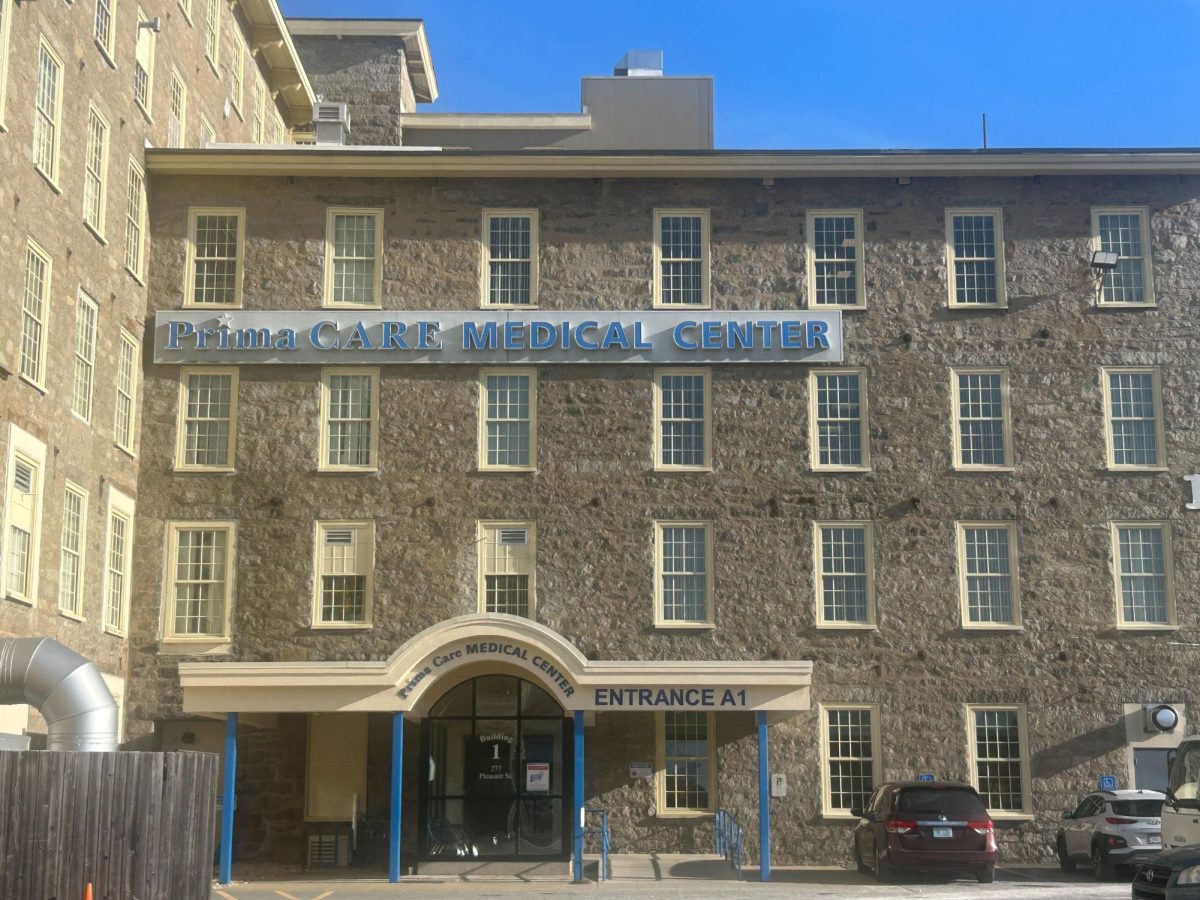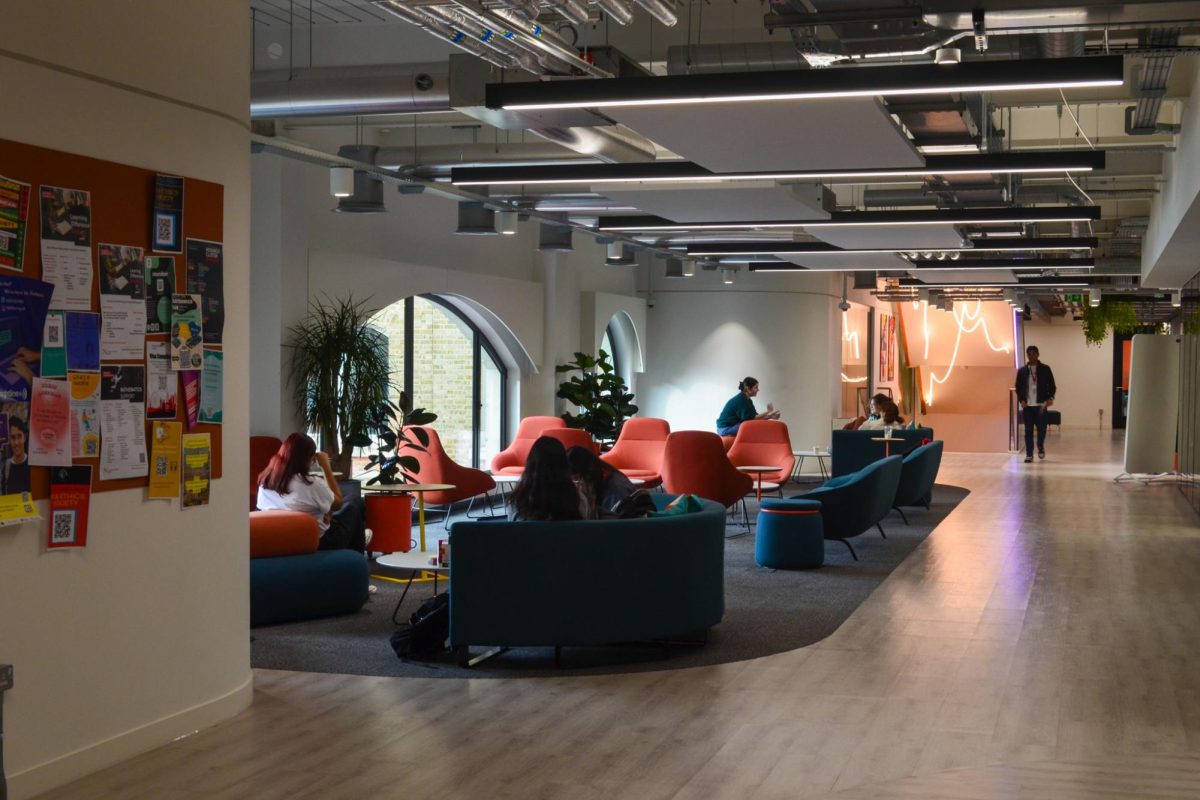By Shaina Richards, deputy news editor
About a dozen attendees ate bagels, scrambled eggs and bacon at the annual Pretty in Pink Brunch for breast cancer awareness on Sunday, Oct. 16 in the Curry Mezzanine.
Hosted by Northeastern’s chapter of Colleges Against Cancer (CAC), the event brought in two speakers to talk about their experiences battling cancer and going through treatment.
CAC is a national collaboration of students, faculty and staff who fight cancer on their own campuses by raising awareness and funds for the American Cancer Society (ACS). Proceeds from the Pretty in Pink Brunch went to ACS.
“Anyone can join and help lobby for various programs to support the American Cancer Society,” said Emma Codman, a senior physical therapy major and the treasurer for Northeastern’s CAC chapter.
This year, the Pretty in Pink brunch had two speakers: Dr. Ann Webster, the director of the Mind Body Program for Cancer at Massachusetts General Hospital (MGH) in Boston, and Pamela Post-Ferrante, author of the 2012 book “Writing & Healing: A Mindful Guide for Cancer Survivors.”
Both speakers have focused their work on a more holistic treatment approach for cancer patients.
“A lot of times when we talk about cancer and curing cancer, we’re focusing on the body and what treatment will work,” said Alexandra Cestone, a senior political science major and co-president of Northeastern’s CAC. “We don’t always put as much emphasis on how to mentally help the patient and their family to get through that difficult time.”
Webster, a health psychologist specializing in self-care techniques, has lectured at MGH for the past 27 years and has conducted workshops for corporations, hospitals and universities around the world.
She started her talk by asking attendees to close their eyes and participate in relaxation exercises that focused on breathing techniques to help reduce anxiety and tension. These exercises are the first thing she teaches to her patients, Webster said.
“I want to make today as experiential as possible, so that all of your muscles can enjoy this time of relaxation—a time to simply be,” Webster said.
Her program focuses on self-care—including relaxation, stress management, exercise, nutrition and spirituality—and its contribution to overall health.
“Long-term survivors are realistic and accept the diagnosis but don’t see it as a death sentence,” she said. “They change lifestyles, and we help our patients do that. They have the ability to get out of stressful situations and a sense of personal responsibility for their health and look at their treating physician as a collaborator.”
Webster said it is most important that survivors become altruistically involved with other people who have cancer. Her program focuses on the importance of healing in groups and the benefits that cancer patients can receive from interacting with others who are going through the same struggles.
Post-Ferrante, who is a breast cancer survivor, spoke about her personal battle. She participated in Webster’s program at MGH when she was first diagnosed in 1993.
“After my first diagnosis, the first thing I did was sign up for her group,” she said.
She went on to tell her “survivor story,” including her struggles and the new life she created as a result.
“First, cancer changed my life, leaving a total of eight surgeries and two rounds of radiation in five years,” she said. “There was also the destabilizing breakup of my marriage, and forced selling of my house in the same year as my final two surgeries. Losses piled up and up.”
Things started to look up when she got accepted to a Master of Fine Arts in Writing program at Vermont College of Fine Arts.
“Mindfulness turned out to be the most important piece I put with writing. [My book] was the light that I used to find my way,” she said.
She later began teaching a course on using writing as an expressive therapy. In 2012, she found out that she had an enlarged heart due to fluid in the pericardial sac surrounding her heart. She said that her writing sustained her as the amount of fluid increased and she found out her heart was collapsing. After surgery, she slowly began to regain strength and continues to teach workshops for cancer survivors both privately and publicly at Mount Auburn Hospital and other locations.
Cestone said she found Post-Ferrante’s story inspiring.
“Being positive and being hopeful can have such a positive impact on your overall well-being,” she said.
The brunch ended with a preview of the documentary that Webster is currently producing, called “Everything Matters,” which highlights five inspirational stories of her patients who thought they were going to die but survived.
“I think the speakers were amazing” said Aishwarya Bhadouria, a junior biology and information science major and co-president of CAC. “It’s so inspiring for us to hear these women speak as we are trying to create our own career path and incorporate impact into our everyday lives.”
Photo by Jon Polen


